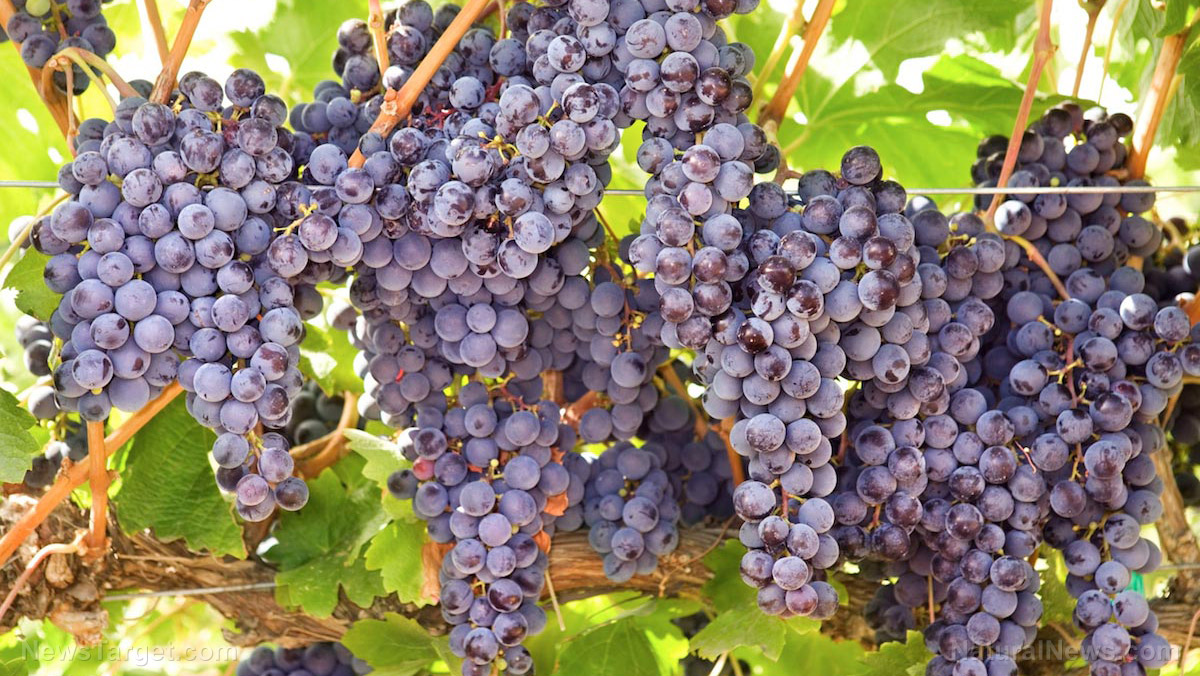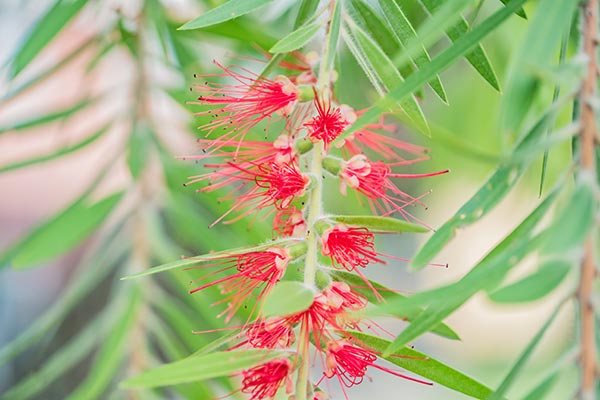Flavonols in grape seeds protect against obesity-related inflammation – study
01/03/2020 / By Evangelyn Rodriguez

Medicinal plants possess a variety of bioactive compounds that give them their beneficial properties. Among these plant components, phenolic compounds are the most widely studied due to their antioxidant and anti-inflammatory activities. Flavonoids, in particular, are well-known for contributing to the health-promoting benefits of fruits and vegetables. In fact, more than 4,000 flavonoids have been identified in plants and functional foods.
The most common flavanoids consumed in the American diet are flavanols. Catechins, epicatechins, epigallocatechins and gallocatechins are flavanols found in superfoods like green tea, chocolate, grapes, apples and red wine. These flavanols are responsible for the positive effects associated with eating grapes and cocoa, specifically, the high antioxidant activities reported by numerous studies.
But flavanols are not only effective in protecting against oxidative damage. In a study published in the journal Nutrition Research, researchers from Virginia Polytechnic Institute and State University and The Ohio State University investigated the effects of flavanols from grape seed and pine bark on mice fed a high-fat diet. They reported that, despite not attenuating weight gain in the animals, the compounds successfully reduced inflammation associated with obesity. This led the researchers to believe that flavanol supplementation can be used as a complementary treatment for inflammatory diseases like obesity and diabetes.
Flavanols from grape seeds and pine bark can reduce the concentration of pro-inflammatory molecules
Weight gain and obesity are linked to increased levels of pro-inflammatory molecules inside the body. According to studies, dietary flavanols can reduce the severity of metabolic conditions caused by a high-fat diet. The degree of polymerization of flavanols is said to play a role in determining the extent of their protective effects.
To evaluate the protective effects of flavanols, the researchers gave mice on a high-fat diet 35 milligrams per kilogram body weight (mg/kg) of grape seed or pine bark daily for 13 weeks. They then compared the body weights of these animals with those of mice fed a low-fat diet and un-treated control mice on a HF diet.
The researchers reported that all the flavanol-supplemented groups and the control group gained a significant amount of weight compared to the lean control. The grape seed group gained significantly more weight than the control. The researchers attributed this effect to hyperphagia — the abnormal increase in appetite associated with injury to the hypothalamus.
Despite a lack of improvements in weight gain and glycemic control, the researchers observed that all flavanol-treated groups had reduced interleukin-6 levels compared to the control. Interleukin-6 is a pro-inflammatory molecule that is produced by the body in response to infections and tissue injuries.
While the grape seed group did gain the most weight, the researchers found that they also exhibited the lowest levels of interleukin-6. Low-dose flavanol extract supplementation, regardless of mean degrees of polymerization, reduced the production of pro-inflammatory cytokines in grape seed-fed mice despite increased weight gain.
Based on these results, the researchers concluded that the obesity-independent effects of flavanol supplementation can be used as a complementary intervention to ameliorate increased inflammation in obese and diabetic patients. They also believe that flavanol-induced hyperphagia can help attenuate cachexia (weakness due to chronic illness).
Fast facts about flavanols
Plants contain an abundance of flavonoids. But among these beneficial compounds, the subgroup consisting of flavanols is the most predominant in healthy foods and beverages. These compounds can be obtained from fruits like apples and grapes, as well as from drinks like tea and red wine. But flavanols are particularly concentrated in pure cocoa. However, eating chocolate may not be the best way to increase your flavanol intake. Research suggests that food processing reduces the flavanol content of its food sources significantly.
Flavanols can do more than just prevent inflammation. According to studies, these flavanoids can not only support the health and function of your blood vessels, they also promote good blood circulation. These are important for maintaining a healthy cardiovascular system. Flavanols can also reverse age-related memory decline and improve cognitive function. Regular consumption of flavanol-rich foods is scientifically proven to be good for the brain.
Sources include:
Tagged Under: alternative medicine, anti-inflammatory, diabetes, food cures, food is medicine, functional food, inflammation, natural cures, natural medicine, obesity, phytonutrients, prevention, research
RECENT NEWS & ARTICLES
COPYRIGHT © 2017 ALTERNATIVE MEDICINE NEWS



















